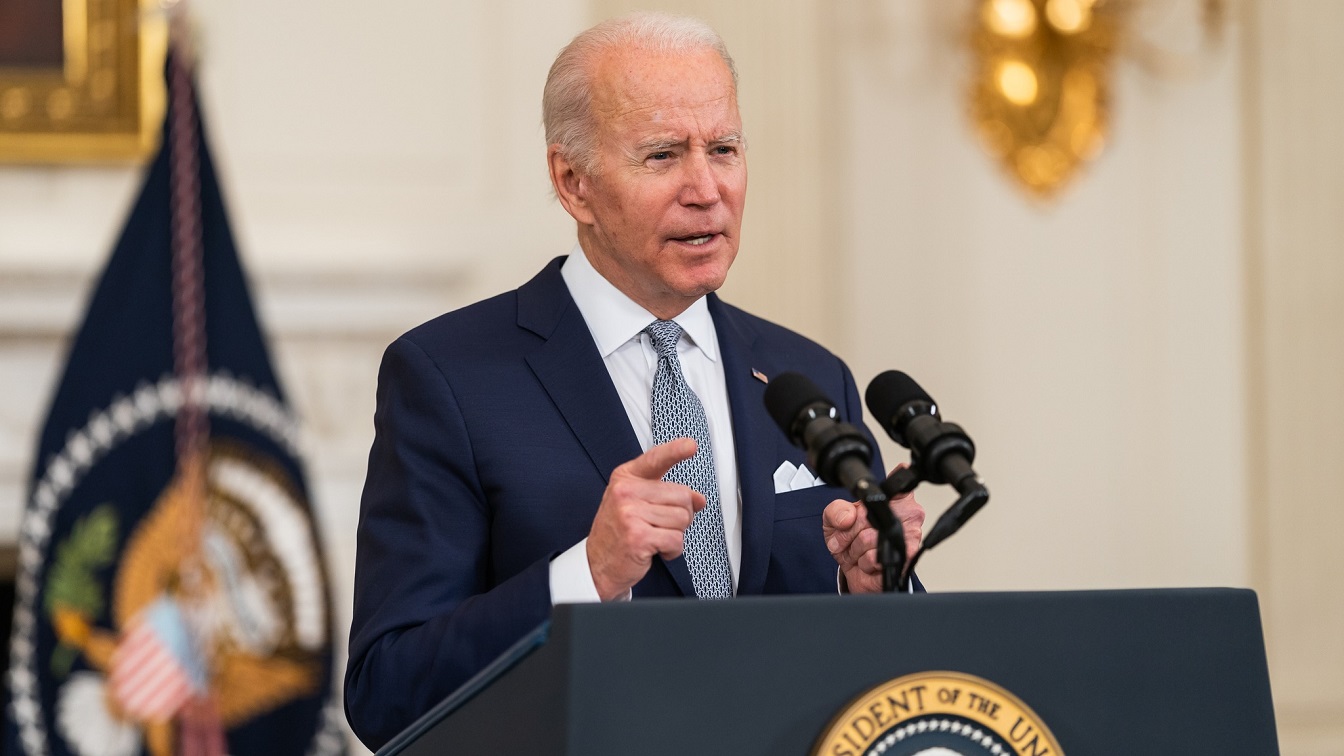The free world still wants America to lead—and not just from behind. Unfortunately, Joe Biden isn’t much of a world leader. While he has given us a national “gender” strategy, he still hasn’t delivered a National Security Strategy. In foreign relations, his guiding “principle” is simply to do the opposite of Trump – and to do it as quickly as possible. This led to disastrous results in Afghanistan and along our southern border.
Biden’s reflexive “I’m not Trump” stance has been accompanied by powerful prodding and commitment from our allies. This haphazard strategy has allowed Biden to make the correct decisions in two current, major challenges: the Ukraine war and North Korean provocations.
The Biden Administration Forced to Make Military Decisions
Trump had rightly insisted that NATO partners live up to their commitments to the alliance by investing more in defense. When Russia invaded, these countries quickly vowed to start living up to their joint defense pledges and, in fact, began to make good on them. Many contributed some toward Ukrainian defense. They also called for more assistance from the U.S.
The Biden team’s initial reaction was slow and centered around moral support. But the administration came to realize that they needed to support arming the Ukrainians.
Yes, Biden’s management of the U.S. effort has been haphazard and without appropriate controls. He has yet to sketch out a U.S. strategy for what success looks like in Ukraine. Still, the U.S. isn’t completely AWOL, which counts as a partial victory.
Most recently, the U.S. has taken a firmer line with Kim Jong-un. On June 5, the Supreme Leader of North Korea launched eight short-range ballistic missiles. The response was something unexpected. South Korea and the U.S. fired eight missiles, a statement of resolve and deterrence. The stance came in part from the desire of the new administration in Seoul to send Kim a strong message. And Washington went along.
How Can U.S. Allies Better Work with America?
From these developments, we can draw some lessons on how America’s allies and partners can engage effectively with the Biden administration. Interestingly, it is the kind of approach that will resonate with American conservatives—even those who are skeptical of overseas engagement. In short, to get Biden’s attention, our allies must show initiative, suggest concrete action, and demonstrate their own willingness to put skin in the game and fight.
In the examples above, both NATO and South Korea showed initiative in reaching out to the U.S. They didn’t just ask for help. They brought ideas and initiatives to the table and made the case for how joint action would serve American interests as well as theirs.
When Trump reprised the term “America First,” he never meant “America Alone.” Our friends and allies have figured that out. They now understand the need to argue why joint action not only advances grand notions such as “a rules-based order,” “advancing shared values,” or “international norms,” but also will be good for every everyday Americans.
More importantly, they recognize that partnership entails taking responsibility and sharing in the burden, risks, and rewards. In defense of Ukraine, for example, Estonia has committed the equivalent of one-third of its annual defense budget to provide resources for Kyiv. That gives them street cred in looking to partner with the U.S. Finland and Sweden want to join NATO. The U.S. will support that because they are not looking to be free riders, but are bringing serious capabilities to the security table. Their membership serves U.S. interests.
The Ukrainians’ willingness and capability to fight was the decisive factor that brought international and American support. The lesson here for those who want to partner with the West –particularly the U.S. – is that those whose aid you want do not have a limitless military or financial resources, and those resources must be earned.
This holds true even for America, as documented in our Index of U.S. Military Strength. The U.S. can best help those who can help themselves. Demonstrating a capacity and resolve for self-defense makes it far more likely to get support from the U.S. and others. No one is probably paying more attention to this lesson than Taiwan.
In today’s dangerous world, the U.S. can’t afford to write blank checks or any checks that are not in America’s interests. We can’t afford to support a lost cause. So, partners not only have to make the case that supporting their self-defense serves U.S. interests; they must demonstrate a capacity for self-defense and be a net contributor to collective security. Significant self-defense capabilities not only help deter aggression (making sovereign territory a more bitter pill for aggressors to swallow), they increase the likelihood that the U.S. will be a reliable partner.
A Heritage Foundation vice president and 19FortyFive Contributing Editor, James Jay Carafano directs the think tank’s research on matters of national security and foreign relations.

